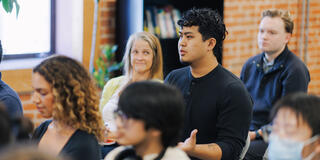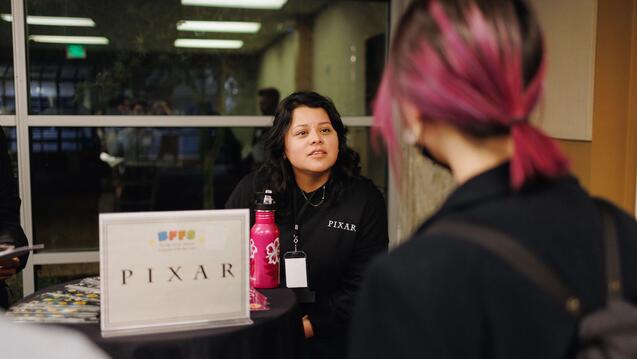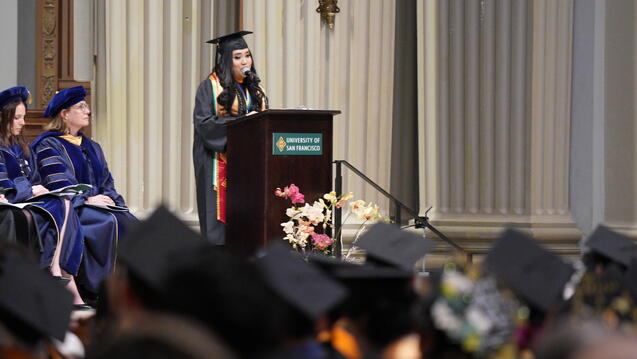USF Grads Land Jobs, Expand Their Careers

In the latest employment survey conducted by USF, 81 percent of graduates from the Class of 2022 report they are employed (compared to 77 percent from the year before), and 10 percent are continuing their education.
Of those on the graduate school path, survey results show that 4 percent are working full-time while taking classes. Overall, 5 percent of the class reported they were seeking employment.
In addition, 77 percent of graduates reported having more than two internships while at USF, said Alex Hochman, senior director of the Career Services Center. This number is notable because employers favor applicants who have work experience, Hochman said.
"It's so inspiring to see our students' hard work and perseverance pay off, with excellent opportunities across a broad spectrum of professional fields,” Hochman said.
The average full-time salary for the top five paying majors are: nursing, $117,667; computer science, $107,581; international business, $80,600; accounting, $77,500; and finance, $72,672.
Grads from those majors are working at Stanford Health Care, UCSF Medical Center, Genentech, Apple, DocuSign, Cathay Bank, Goldman Sachs, and Visa, among other companies.
When she graduated in 2022, Maya Ayed went to work in marketing for Twilio, a San Francisco communications and technology company.
“I loved my time there,” she said. “I was learning.”
But Ayed, who majored in business administration, realized that she wanted to do something that has more social impact, and that she wanted to be an entrepreneur. Last year she founded the Gaya Collective, an organization for female founders who work in women’s health. There, she organized events and worked on building her own network.
Today, she is chief of staff of Amira Health, a menopause-care startup in San Francisco.
“My hope is to align women’s health research with technology in the market — to bridge the gap,” she said.
Michael Sun ’22, an international business major, had an internship with a recording studio in Los Angeles that turned into a job after graduation.
Sun learned a lot about the recording industry, mostly by working 5 p.m. to 5 a.m. every day for seven months.
“I learned a lot,” he said. “And I learned what I don’t want to do.”
When a fellow USF grad reached out to him about a writing job, Sun was happy to make the shift. He now writes content for a media company.
Ayed and Sun both said they relied on their networks to advance their careers.
“If you want to get a job, you should not rely 100 percent on traditionally applying for jobs,” Ayed said. “I got a new job and a new role that I didn’t expect at all. It took a coffee chat for it to happen.”


